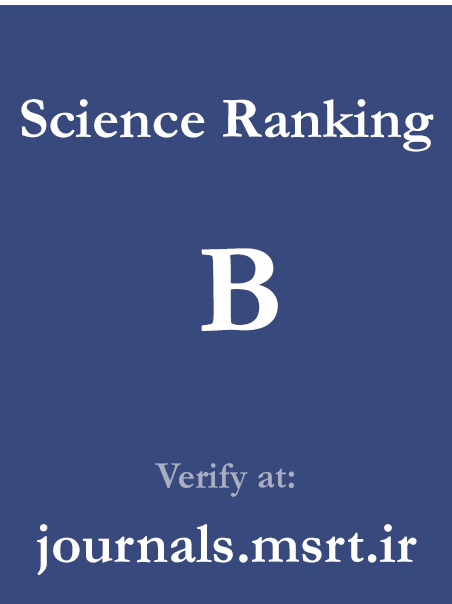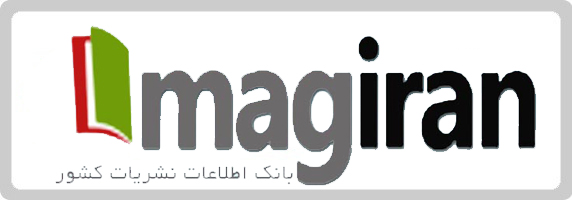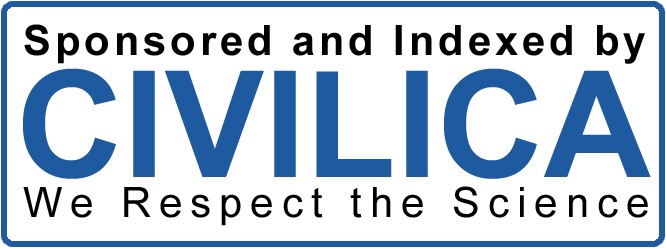Systematic Review of Future Thinking Skills and Their Impact on Academic Achievement
Keywords:
foresight, cognitive skills, academic achievement, systematic review, PRISMAAbstract
The objective of this study was to conduct a systematic literature review (SLR) of research on future thinking skills in higher education during the period from 2014 to 2023, with a focus on classifying these skills and analyzing their impact on students’ academic achievement. The systematic literature review (SLR) methodology was employed to analyze previous studies related to future thinking skills in higher education. The search process included major academic databases such as ERIC, ResearchGate, and Google Scholar, in which 507 articles were screened, and 22 relevant studies were selected based on predetermined inclusion and exclusion criteria. This review revealed a significant shortage of published research on future thinking skills in higher education, as only 22 relevant studies were identified out of the 507 articles reviewed. In recent years, particularly between 2020 and 2023, there has been a notable increase in the number of published research articles in this area, indicating growing academic interest in foresight-related thinking skills. Three Arab countries dominated research output on future thinking: Iraq, Egypt, and Saudi Arabia. This reflects the growing regional interest in fostering students’ future thinking skills. Future thinking skills were classified into three main categories: Preventive skills, such as future planning, scientific forecasting, and decision-making; Creative skills, such as envisioning the future and constructing scenarios; and Adaptive skills, such as solving future problems, trend analysis, and positive thinking. Studies have shown a positive relationship between future thinking skills and students’ academic achievement. These skills contribute to improved academic performance, increased motivation, and enhanced self-regulation and the ability to make sound academic decisions. This systematic review emphasized the importance of integrating future thinking skills into higher education curricula, given their positive impact on students’ academic achievement. It also recommended conducting further research to develop effective measurement tools for these skills and to design educational programs that systematically enhance them.
Downloads
References
1. Slaughter R. Futures for the 3rd Millenium: Enabling a forward view prospect. Sydney: Prospect Media; 1999.
2. Torrance E. The Millennium: A Time for Looking Forward and Looking Back. 2003;15(1):6. doi: 10.4219/jsge-2003-442.
3. Vidergor HE. Promoting Future Thinking in Elementary and Middle School Applying the Multidimensional Curriculum Model,thinking skills and creativity. 2019;31(1):19-30. doi: 10.1016/j.tsc.2018.10.001.
4. Hafez IH. Future Thinking (Concept - Skills - Strategies). Cairo, Egypt: Dar Al-Ulum for Publishing and Distribution; 2015.
5. Torrance EP. Creativity and Futurism in Education: Retooling Education 1980. Available from: http://www.E.P.Torr.com/ew/vol-.
6. Torrance EP. Participating teachers evaluate the Future Problem Solving Program. 1999;31(2):21-33.
7. Alabdullah M, Agha QQ, Abdullah MK. Building Academic Resilience Through Positive Thinking: A Study of University Students in Syria. Asian Journal of Education and Social Studies. 2025;51(1):280-92. doi: 10.9734/ajess/2025/v51i11747.
8. Mohkam Kar A, Shaterian F, Nikookar A. Effectiveness of Critical Thinking Education on Divergent Thinking and Academic Enthusiasm of High School Students. Iranian Journal of Educational Sociology. 2024;7(1):141-9. doi: 10.61838/kman.ijes.7.1.14.
9. Emesi KE, Anyanwu AN, Ezenwosu EN. Examining Students' Mental Toughness, Self-Worth and Critical Thinking Skill as Predictors of Academic Achievement in Mathematics in Anambra State, Nigeria. European Journal of Contemporary Education and E-Learning. 2024;2(1):88-102. doi: 10.59324/ejceel.2024.2(1).08.
10. Ganjifard M, Jafar Tabatabaei SS, Jafar Tabatabaei TS, Shahabizadeh F. Comparison of the Effectiveness of Problem-Solving Approach-Based Training and Critical Thinking Training on Reducing Academic Self-Handicapping Behaviors and Academic Procrastination in Nursing Students with Test Anxiety. Journal of Assessment and Research in Applied Counseling (JARAC). 2024.
11. Nabil A. Challenges of the Information Age. Cairo: Egyptian Book Authority; 2003.
12. Minas AH. Schools of the Future (Present Responses to Future Transformations,Curriculum and the Inevitability of Change)2005.
13. Alister Jones.et a. Developing students futures thinking in science education. Research in Science Education. 2011. doi: 10.1007/s11165-011-9214-9.
14. Laherto ART. Facilitating transformative science education through futures thinking. THE INTERNATIONAL JOURNAL OF LEARNING FUTURE. 2022.
15. Salman B. Psychological capital and its relationship to future thinking among university students. 2023.
16. Nasha SM. A Suggested training program in science based on the principals of the social constructivism theory to develop the sustainable consumption and the future thinking skills for the preparatory school students. Journal of the Faculty of Education in Educational Sciences - Ain Shams University. 2023(47 (Part One)).
17. Mengist WS. Method for conducting systematic literature review andmeta-analysis for environmental science research. MethodsX. 2020;7:100777. doi: 10.1016/j.mex.2019.100777.
18. Mengist w. Historical Development of Environmental Management Tools and Techniques: A Review Paper on Its Driving Forces. International Journal of Energy and Environmental Science. 2020;5(5):90-100. doi: 10.11648/j.ijees.20200505.12.
19. Moher D. Preferred reporting items for systematic reviews and meta-analyses: the PRISMA statement. Ann Intern Med. 2009;151:264-9. doi: 10.7326/0003-4819-151-4-200908180-00135.
20. Moher DS. Preferred reporting items for systematic review and meta-analysis protocols (prisma-p) 2015 statement. Systematic Revview. 2015;4(1). doi: 10.1186/2046-4053-4-1.
21. Abu Safieh LA. The effectiveness of a training program based on solving future problems among a sample of tenth grade female students in Zarqa: University of Jordan, Faculty of Graduate Studies; 2010.
22. AlShafey GA. The effectiveness of a proposed course in environmental sciences based on problem-centered learning in developing future thinking skills and environmental awareness among students of the Faculty of Education, Helwan University, Basic Education Department. Journal of Arab Studies in Education and Psychology. 2014(46). doi: 10.21608/saep.2014.50119.
23. Choi JA, Yang J. The Role of Should-Thinking on the Academic Procrastination Process of High Achievement Motivators. Korean Association for Learner-Centered Curriculum and Instruction. 2024;24(1):1-17. doi: 10.22251/jlcci.2024.24.1.1.
24. Choi JA, Yang J-Y. The intrapsychic process of academic procrastination: How should-thinking aggravates self-regulatory failure. Learning and Individual Differences. 2024;109:102397. doi: 10.1016/j.lindif.2023.102397.
25. Alqahtani M, Elsayed SA. Degree of Intermediate School Teachers' Possession of Future Thinking Skills in light of (PISA) Test Dimensions in Mathematics and Arabic Language. Eurasian Journal of Applied Linguistics. 2023;9(3):83-95.
26. Karim AK, Thamer SK. Future thinking among medical group students. Journal of Positive School Psychology. 2022;6(4):9213-24.
27. Ilias A. DEVELOPMENT OF FUTURE THINKING TEST INSTRUMENT FOR. International Journal of Education,Psychology and Counseling. 2022;7(47):337-53. doi: 10.35631/IJEPC.747029.
28. Elsayed NAe. The effect of the interaction between meta-emotion and educational level on future thinking skills among Faculty of Education students at Al-Azhar University in Cairo. Egyptian Journal of Psychological Studies. 2020;30(109).
29. Al-Ma'ramiyah Sb, Ambo Saeedi A, Ali H, Yusra J. The degree of possession of future thinking skills by science student teachers at Sultan Qaboos University. Tasnim Journal of Humanities, Social and Legal Sciences. 2023.
30. Julien MP, Chalmeau R, Mainar CV, Léna JY. An innovative framework for encouraging future thinking in ESD: A case study in a French school. Futures. 2018;101:26-35. doi: 10.1016/j.futures.2018.04.012.
31. Hazim kA. Future thinking among gifted and ungifted female students in Al-Ahsa city. Journal of the Faculty of Education - Tanta. 2020;79(Third, Part First).
32. Al-Kharousi IK. Future Thinking among twelfth grade students in Government schools in Sultanate of Oman in Light of Some Variables. Journal of Educational and Psychological Sciences (JEPS). 2023;7(45).
33. Phusee-orn S, Pongteerawut S. The 9th Graders' Relation of Futuristic Thinking Factors Study. Higher Education Studies. 2022;12(3):134. doi: 10.5539/hes.v12n3p134.
34. Rasa T, Palmgren E, Laherto A. Futurising science education: students' experiences from a course on futures thinking and quantum computing. Instructional Science. 2022. doi: 10.1007/s11251-021-09572-3.
35. Siew NRMS. EFFECTS OF SOCIO-SCIENTIFIC ISSUES BASED ON THINKING MAPS APPROACH ON FUTURE THINKING OF SECONDARY SCHOOL STUDENTS. Journal of Baltic Science Education. 2022.
36. Walaa DK, Hadi KS. The Effect of Using The Strategy of Graduated Activities on Future Thinking among Second Grade Intermediate Students in The Science Subject. International Journal of Humanities and Social Sciences. 2020(16):162-74. doi: 10.33193/IJoHSS.16.153.
37. Younis WM, jardo hA. The effect of snowball strategy on the scientific sense and future thinking of sixth-graders in elementary science. Journal of the College of Education / University of Wasit. 2021(43).
38. Al-Ali MH, Hussein SI. Future thinking skills for university students. Journal of Educational and Psychological Research. 2020;17(67).
39. Al-Qahtani SM. The level of application of future thinking skills among students of the Arab Gulf University "theory and application". International Journal for the Development of Excellence. 2020.
40. AlShafey GA. The effectiveness of a proposed course in environmental sciences based on problem-centered learning in developing future thinking skills and environmental awareness among students of the Faculty of Education, Helwan University, B2014.
41. Hanfy S. The effect of using some logical and deductive intelligence strategies and philosophical concepts among secondary school students in Egypt. Journal of the Faculty of Education, Beni Suef University. 2007.
42. Timothy D. Managing Heritage and Cultural Tourism Resources, Critical Essays. Ashgate. 2007;1.
43. Al-Drabkeh MMK. Future Thinking Skills of Gifted and Non-Gifted Students - A Comparative Study. Al-Quds Open University Journal of Educational and Psychological Research and Studies. 2017. doi: 10.5281/zenodo.1404646.
44. Tsai MY, Lin HT. The Effect of Future Thinking Curriculum on Future Thinking and Creativity of Junior High School Students. Journal of Modern Education Revie, USA March 2016. 2016;6(3):176-82. doi: 10.15341/jmer(2155-7993)/03.06.2016/004.
45. Imam SA. The effectiveness of a proposed program based on green education principles in developing future thinking skills and environmental awareness among secondary school students. Journal of the Faculty of Education, Benha. 2023.
Downloads
Published
Submitted
Revised
Accepted
Issue
Section
License
Copyright (c) 2025 Noor Naim Ajil (Author); Ali Khalkhali; Falih Abdul Hasan Owai, Mahbuh Sadat (Author)

This work is licensed under a Creative Commons Attribution-NonCommercial 4.0 International License.




